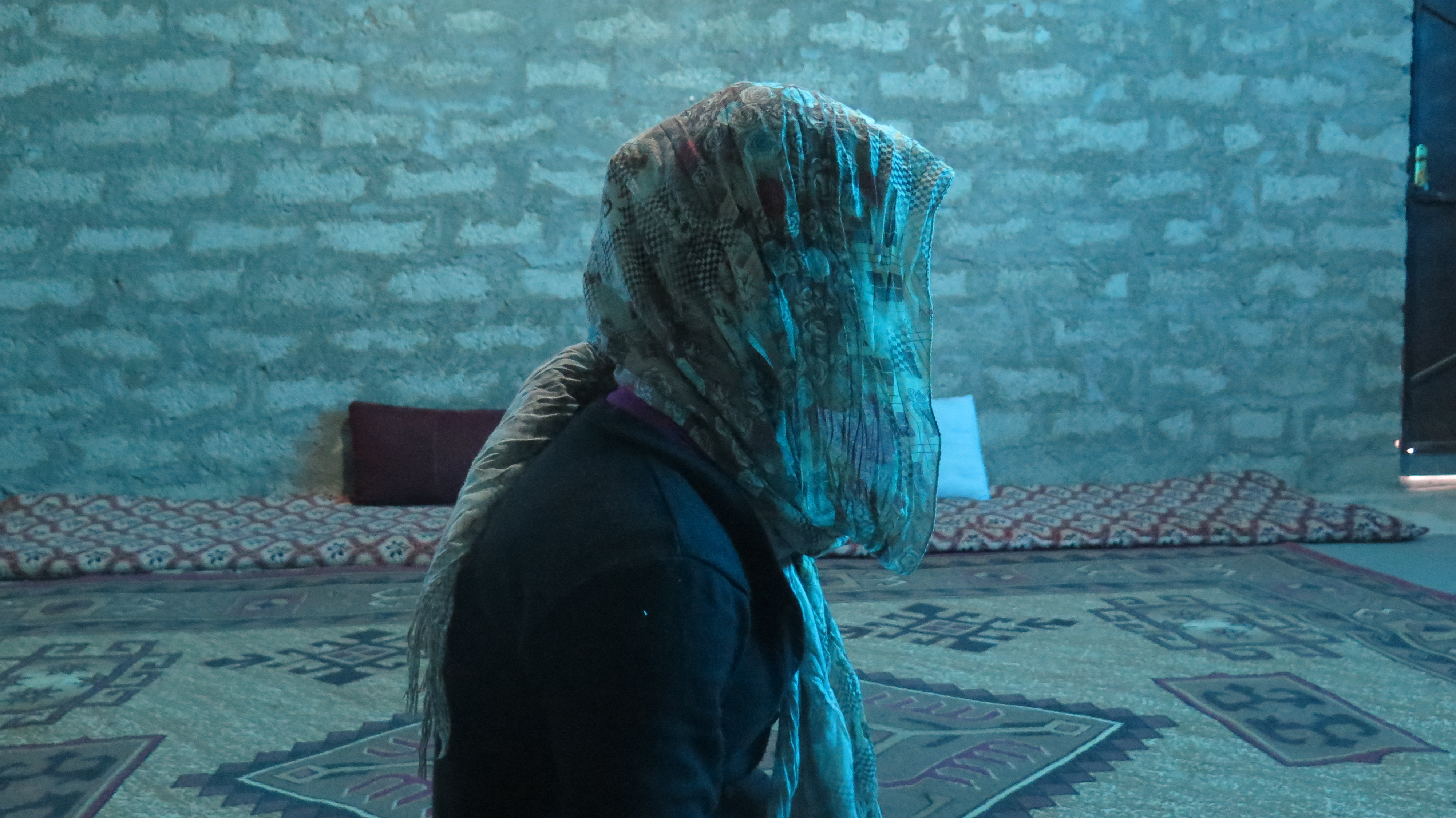
A girl in Khakhe camp who was a victim of Islamic State abuse.
By Alice Dahle, AIUSA’s Women’s Human Rights Co-chair
In early August 2014, extremist fighters, who were attempting to create a new Islamic caliphate, the so-called Islamic State (IS), attacked towns and villages in the Mt. Sinjar region of northern Iraq. These combatants are known by various names, including ISIS, ISIL and Da’esh. Their plan began with an ethnic cleansing of the non-Muslim population in the area, with a particular focus on the Yazidi (also spelled as Yezidi) people who had lived there for thousands of years.
The Yazidis follow their own ancient religion, and their own culture and identity have evolved over the centuries. Before the invasion of the IS, this tiny minority group made up about 1.5% of the population of Iraq.
During the IS attack in 2014, more than 5,200 Yazidis were abducted, and more than 400,000 were forced out of their homes. Many fled into the Sinjar Mountains or into the north Kurdish area.
Treatment of those taken captive was brutal and varied by age and sex. Men and boys were immediately separated from women and girls. Some of the younger boys were taken away to be indoctrinated and turned into soldiers for the IS, but most of the men and older boys were executed immediately and buried in mass graves.
Women and girls, too, were separated by age. Older women were killed, but those who were young and strong were detained in schools or abandoned buildings until they were gradually taken away and sold by their captors as slaves or “wives”. Some were sold for as little as a pack of cigarettes.
Many sold as “wives” were ordered to become Muslims, and if they resisted, they were beaten, starved, threatened with being sold into a brothel or otherwise punished. Some girls put dirt on their hair and faces and refused to bathe in an attempt to avoid “marriage” or sexual assault and rape. Others tried to commit suicide, rather than submit, and some were successful. Girls as young as 9 years old were kept as sexual slaves. Those who were disobedient were sold and resold or given away as presents.
Some of these women and girls have escaped, and Donatella Rovera, Amnesty International Senior Crisis Response Advisor, has spoken with more than 40 of them. In a report called Escape from Hell: Torture and Sexual Slavery in Islamic State Captivity in Iraq, she states that, “The physical and psychological toll of the horrifying sexual violence these women have endured is catastrophic. Many of them have been tortured and treated as chattel. Even those who have managed to escape remain deeply traumatized.”
One such survivor is Nadia Murad, a young Yazidi woman who survived kidnapping and sexual slavery. Her mother and six of her brothers were executed during the IS attack on her village. After 4 months in captivity, Nadia escaped when her captor left a door unlocked and a neighboring family smuggled her into a refugee camp. On September 21, 2016, the UN Office on Drugs and Crime appointed Nadia Murad their Goodwill Ambassador for the Dignity of Survivors of Human Trafficking.
Nadia has stated that, “The sole aim of the IS was to destroy Yazidi identity through forced rape, the recruitment of children and the destruction of our temples.” She described IS’s actions as “collective genocide against Yazidi identity” and religion and called for the International Criminal Court to take up the case.
UN Secretary General Ban Ki-moon referred to Nadia as a “fierce and tireless advocate for the Yazidi people and victims of human trafficking everywhere.” He also suggested that IS’s crimes against the Yazidis might qualify as genocide and called for the immediate release of the thousands of Yazidis still held captive.
Nadia Murad has been granted asylum in Germany, as have a number of other women and girls who have managed to escape from IS captivity. Many of these survivors are reluctant to talk about what happened to them. In addition to coping with the trauma of the violence they endured, they fear rejection and the stigma of tarnished “honor”. Many do not know the fate of their family members, and they are still grieving the loss of those who were killed.
Women’s experiences and stories during times of conflict are a reminder of how women disproportionately suffer gendered human rights violations, such as sexual assault and rape. These brave women and girls deserve our admiration and solidarity. Please let them know they are not alone by signing our postcard and sending them an encouraging message.
URGENT ACTION CASE
You can also take immediate action on behalf of Bassema Darwish Khidr Murad, a 34-year-old Yazidi woman who survived abduction by the IS. She continues to be arbitrarily detained with her infant daughter at the Women and Juvenile Prison in Erbil, in the Kurdistan Region of Iraq. Amnesty International is concerned by reports of abuse faced by Bassema Darwish including being beaten with cables when initially held at the Anti-Terrorism Directorate of the Kurdistan Regional Government. Find out how to take action here.
Personally, I like Yazidi Women and Girls! They are always beautiful to look. London escort services is a great company who provide beautiful escort to their client. Hope you will try at least one time.